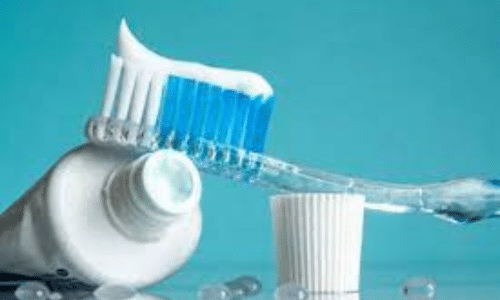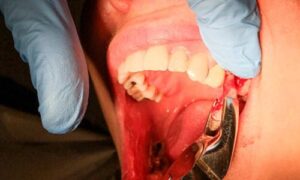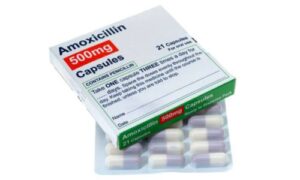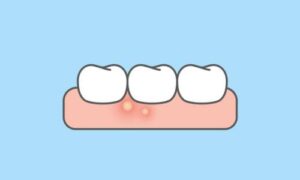Introduction
Regarding dental care and maintaining healthy teeth, two prominent players often enter the conversation: Hydroxyapatite and Fluoride. Both have unique qualities and benefits, but which should you choose? This article will delve into Hydroxyapatite vs. Fluoride to help you make an informed decision about your oral health. Hydroxyapatite is a naturally occurring mineral that makes up most of our tooth enamel, making it an attractive option for toothpaste and oral care products. On the other hand, Fluoride is a chemical compound that helps to strengthen tooth enamel and prevent tooth decay.
Understanding Hydroxyapatite
Hydroxyapatite, often called the “building blocks of teeth,” is a naturally occurring mineral that makes up a significant portion of your tooth enamel. This crystal-like structure provides strength and durability to your teeth and plays a crucial role in remineralizing and repairing tooth enamel. When acids or bacteria damage tooth enamel, Hydroxyapatite helps to replenish the minerals lost and restore the integrity of the enamel. This process is essential for maintaining healthy teeth and preventing cavities. Additionally, Hydroxyapatite can be found in some dental products as an alternative to Fluoride, offering a natural approach to oral care.
Advantages of Hydroxyapatite
Natural Composition: Hydroxyapatite is a naturally occurring mineral found in your teeth and bones, making it a biocompatible choice for dental care. Its natural composition ensures that it is well-tolerated by the body and reduces the risk of adverse reactions or side effects. Furthermore, Hydroxyapatite has been shown to promote the remineralization of tooth enamel, leading to more robust and more resistant teeth.
Remineralization: Hydroxyapatite can remineralize tooth enamel, potentially reversing the early stages of tooth decay. This process involves the deposition of minerals, such as calcium and phosphate, onto the tooth surface, effectively repairing and strengthening the enamel. Research has also suggested that Hydroxyapatite can help prevent tooth sensitivity by sealing exposed dentin tubules, relieving individuals with sensitive teeth.
Reduces Sensitivity: Sealing exposed dentinal tubules can help reduce tooth sensitivity. Additionally, Hydroxyapatite has been found to have antimicrobial properties, which can help inhibit the growth of bacteria that contribute to tooth decay and gum disease. This further promotes oral health and prevents future dental issues.
Non-Toxic: Hydroxyapatite is non-toxic and safe for all age groups, including children and pregnant women. It is a biocompatible material that does not cause any adverse reactions or allergies. Moreover, its non-toxic nature makes it an ideal choice for individuals concerned about the potential risks associated with other dental treatments or products.
Exploring Fluoride
Conversely, Fluoride is a synthetic mineral used for decades in dental care. It is commonly added to toothpaste and drinking water to strengthen teeth and prevent cavities. Fluoride works by remineralizing the enamel, making it more resistant to acid attacks from bacteria and sugars. It has been proven highly effective in reducing tooth decay and improving oral health. However, some individuals may be concerned about the potential risks of excessive fluoride intake, especially in children who accidentally swallow toothpaste or consume highly fluoridated water. These concerns have led to ongoing research and regulation to ensure safe levels of Fluoride in dental products and drinking water. Parents must supervise their children’s toothbrushing habits and teach them to spit out toothpaste rather than swallow it. Additionally, individuals can choose fluoride-free alternative toothpaste options if they have concerns about fluoride intake.
Advantages of Fluoride
Cavity Prevention: Fluoride effectively prevents tooth decay and cavities by strengthening tooth enamel. This helps to create a protective barrier against acid attacks from bacteria and sugars, reducing the risk of dental decay. Additionally, Fluoride can reverse the early stages of tooth decay, promoting tooth remineralization and preventing further damage to the teeth.
Widely Available: Fluoride products are readily available and affordable, making them accessible to a broad population. Furthermore, Fluoride is commonly found in tap water, toothpaste, mouth rinses, and professional dental treatments, ensuring that individuals have multiple options for incorporating Fluoride into their oral hygiene routine. This widespread availability contributes to Fluoride’s general use and effectiveness in preventing tooth decay.
Proven Track Record: Decades of research support the benefits of Fluoride in dental care. Numerous studies have shown that Fluoride can reduce the risk of cavities by up to 50-70%. Additionally, organizations such as the American Dental Association and the World Health Organization endorse the use of Fluoride in dental care, further validating its effectiveness.
Hydroxyapatite Vs. Fluoride: A Comparison
1. Safety
Hydroxyapatite: This natural mineral is safe and has no known side effects. Individuals of all ages can use it.
Fluoride: While generally safe, excessive fluoride intake can lead to dental fluorosis, a cosmetic issue that affects tooth enamel appearance. This is more of a concern in areas with high natural fluoride levels or excessive fluoride exposure.
2. Remineralization
Hydroxyapatite: Known for its remineralization properties, it can help repair early tooth decay and strengthen enamel.
Fluoride: Fluoride primarily focuses on preventing decay rather than actively repairing enamel.
3. Availability
Hydroxyapatite: Hydroxyapatite products are becoming more popular but may not be as widely available as fluoride-based products.
Fluoride: Fluoride toothpaste and treatments are widely available and recommended by dental professionals.
Choosing the Right Option Hydroxyapatite vs. Fluoride
The choice between Hydroxyapatite and Fluoride ultimately depends on your needs and preferences. Here are some guidelines:
- Hydroxyapatite may be your choice if you want a natural and biocompatible option.
- Fluoride-based products can be highly beneficial if you live in an area with low fluoride levels in the water supply or have a history of cavities.
- Some individuals may even opt for a combination of both, using hydroxyapatite-based toothpaste for daily use and fluoride treatments as their dentist recommends.
FAQ’s
Here are some frequently asked questions (FAQs) related to Hydroxyapatite vs. Fluoride in dental care:
1. What is Hydroxyapatite?
Hydroxyapatite is a naturally occurring mineral found in teeth and bones. It is often called the “building blocks of teeth” because it provides strength and durability to tooth enamel.
2. What is Fluoride?
Fluoride is a synthetic mineral commonly used in dental care to strengthen tooth enamel and prevent cavities. It is often added to toothpaste and drinking water.
3. Are Hydroxyapatite and Fluoride safe to use?
Hydroxyapatite: Hydroxyapatite is safe and suitable for individuals of all ages, including children and pregnant women.
Fluoride: Fluoride is generally safe when used in recommended doses. However, excessive fluoride intake can lead to dental fluorosis, a cosmetic issue affecting tooth enamel.
4. How does Hydroxyapatite work in dental care?
Hydroxyapatite can remineralize tooth enamel and repair early stages of tooth decay. It can also help reduce tooth sensitivity by sealing exposed dentinal tubules.
5. What are the primary benefits of Fluoride in dental care?
Fluoride effectively prevents tooth decay and cavities by strengthening tooth enamel. It has a proven track record in dental care and is widely accessible.
6. Can I use both Hydroxyapatite and Fluoride products?
Yes, some individuals choose to use both types of products. For example, you may use a hydroxyapatite-based toothpaste daily and receive fluoride treatments as your dentist recommends for additional cavity protection.
7. Are there any side effects associated with Hydroxyapatite or Fluoride use?
Hydroxyapatite is generally considered safe and has no known side effects. However, Fluoride can cause dental fluorosis if consumed in excess.
Conclusion
In conclusion, both Hydroxyapatite and Fluoride have their merits in dental care. Your choice should be based on your specific dental needs and preferences. Consult your dentist to determine the most suitable option for maintaining oral health. Remember that regular dental check-ups and a consistent oral hygiene routine are critical to a healthy smile, regardless of your choice between Hydroxyapatite and Fluoride.














